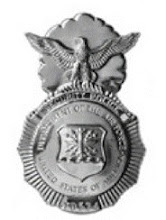
Our local newsrag featured an article in which the constitution was put forth as a very complicated document by a political science professor. I thought, of course it's a complicated document, to one who makes his living interpreting politics and government for those of us with lesser intelligence than his. The constitution has always come off to me as a simple ideal that spawned an equally simple document. My reading tells me that the constitution performs one overarching task and that is to spell out the limited powers of a republican government. Nothing more, nothing less. The tenth amendment was added to allay the fears of the signers that the federal government would have unlimited power. They trusted state and local governments as entities of government far more than a distant federal government.
In class we are studying the founding period. We have taken a real in-depth look at the Articles of Confederation and the constitution. In both, a weak federal government was the aim and both documents were written that way. The Articles were scrapped because it lacked any real mechanism to carry out necessary government functions without the unanimous agreement of the thirteen states. While the constitution may have given the federal government more power, it was purposely harnessed with the inclusion of explicit, enumerated powers.
For example, as president James Madison was presented with a bill that allowed the federal government to distribute money to the states for the purpose of building roads and bridges, sometimes referred to as the American Plan. Two of the foremost proponents of this idea were Henry Clay and John Quincy Adams. In 1816, Madison vetoed this legislation on the grounds that it was not constitutional for the federal government to use the taxpayer's money to fund projects in the states and that it unconstitutionally enlarged the powers of the federal government. In other words, it isn't in the enumerated powers. Simple concept, no? As I pointed out to my students, this is a powerful statement considering that Madison was the architect of the constitution.
Oddly enough, this issue was again in the forefront of the 1824 election, featuring Adams, Clay, Andrew Jackson, and William Crawford. Jackson won the popular vote, but he failed to get a majority of the electoral college which threw the election into the House of Representatives. Clay finished third and out of consideration. As the Speaker he threw his support behind Adams who won the election. Clay was appointed Secretary of State, in those days the steppingstone to the presidency, in what came to be known as the "Corrupt Bargain." The American Plan again died in congress and languished for many years as Jackson and his successors were not in favor of it. Madison had set a precedent that was obviously later kicked to the curb beginning in the progressive era. Here is another simple concept, money is power. Government as Santa has powerful consequences. FDR was a master of targeted government spending in order to buy votes. Therein lies the power of the majority. Somehow I think the unused funds in the "stimulus" package will be targeted to buy votes in the same fashion.
Through the years, the elastic clause and interstate commerce clause have been distorted beyond any recognition. My thought has always been that the courts and college law professors have sold Americans on the concept that the constitution is a complicated document. This a sort of self-serving stance in that it makes the legal community the go-to guys for we Americans who are uneducated enough to think that the constitution is not complicated.
Limited government. Simple ideal, simple document.










9 comments:
L&O Teach, I think you are right. They have read so much into it thereby bastardizing the whole document. It reads the same today as it did when it was written. I say, if they want to change it go for an ammendment. Otherwise read it for what it says,,not what you think it says....stay well....
J. Q. Adams placed his hand on a book of laws containing the Constitution when he took the Presidential Oath. JQA was a strong proponent of the American Plan.
"Like my father before me, I served but one term as President. I left the presidents’ house in March of 1829 making way for President Andrew Jackson. All my hopes for the long continuance of this Union were extinct. My system of administration was to make the national domain the inexhaustible fund for unceasing public improvement; it has failed: Abandoned by Henry Clay, deserted by Calhoun and given up by Daniel Webster."
from - JOHN QUINCY ADAMS: "A Spirit Unconquerable!"
How is the Constitution complicated. It isn't some damned poem to have a million interpretations made.
It says exactly what government cannot do to us, SIMPLE.
Kind of funny how the same or similar things: ""All my hopes for the long continuance of this Union were extinct".
So one side or the other has been "destroying America" since we were founded.
I find similarities in The Constitution to many contracts I've worked on LAoT. There is always some ambiguity for leeway. The Commerce Clause is a good example. It could be taken as far as whoever wants.
The 2nd Amendment. "In ored to keep a well regulated militia". I don't see this as an infringement on the rights of responsible, law abiding citizens to own guns these days, but I can see where someone else could reasonably interpret that we no longer need "Minutemen" so the public should now be subject to stricter, or banning altogether, of guns.
Tap,
Thanks for the visit. I too, fail to see the ambiguity in the constitution. Of course, everything is open to interpretation if you don't want to see the simplicity.
JC,
Thanks for the visit. Good quote. I look forward to reading another post from you on your blog. I share your admiration for Calvin Coolidge. Please write again and feel free to visit.
Brooke,
As usual you are right on the money. The constitution isn't a poem open to intrepretation. Good point.
Truth,
Your point is well-taken. Most of the time politicians engage in hyperbole in order to attach some significance to what they say.
I'm sure leeway is the proper word for the distortion of the words of the constitution. I think it can be safely said that the framers did not contemplate some of the interpretations of the commerce clause politicians have attached and gutless judges have allowed to stand. Commerce is the normal course of business between parties. What a shame these people have twisted the constitution to the point of breaking.
The founding generation referred to the militia as a group of individuals who at time took up arms to form an armed force. Once their duties ended, they were free to return to their homes and resume their lives.
The second amendment ownership of guns is not a collective, but an individual right as are all those listed in the Bill of Rights. Thankfully the Supreme Court ruled that way THIS TIME.
The constitution is an individual rights document.
We recall the constitutionality of the Lousisana Purchase. Federalists raged-needed a constitutional amendment.
Took Scotus until 1828 to
make a decision...politics, as ususal.
In the early 1890s, Black River Academy in Ludlow, Vermont was the equivilent of high school for Calvin Coolidge.
"At Black River I had my first introduction to the Constitution of the United States. The study of it which I then began has never ceased, and the more I study it the more I have come to admire it, realizing that no other document devised by the hand of man ever brought so much progress and happiness to humanity. The good it has done can never be measured."
I think no president presided over a more "Constitutional" administration than did Coolidge. He viewed it as a "how to" govern and not an impediment to what he might wish to do.
BB-Idaho,
Good discussion point. That indeed was a disagreement at the time and a decent case can still be made for the unconstitutionality of the purchase.
Jefferson himself agonized over it, but approved it mostly based on the mercurial personality of Napoleon. I'm sure James Monroe couldn't get permission fast enought to approve the deal having been sent to France to purchase the port of New Orleans and as much land as possible for $10 million.
Over 180,000 square miles for $15 million or about 3 cents an acre. Good deal. Thanks for the visit.
JC,
I would agree that Coolidge presided over 6 years in which the constitutional was scrupulously followed and the economy soared. Mellon's tax reductions slashed the national debt by millions. Thanks for the visit.
"In spite of all his greatness, any one who had as many ideas as Jefferson was bound to find that some of them would not work. But this does not detract from the wisdom of his faith in the people and his constant insistence that they be left to manage their own affairs. His opposition to bureaucracy will bear careful analysis, and the country could stand a great deal more of its application. The trouble with us is that we talk about Jefferson but do not follow him. In his theory that the people should manage their government, and not be managed by it. He was everlastingly right."
Autobiography of Calvin Coolidge (1929)
pps 213 -214
Post a Comment